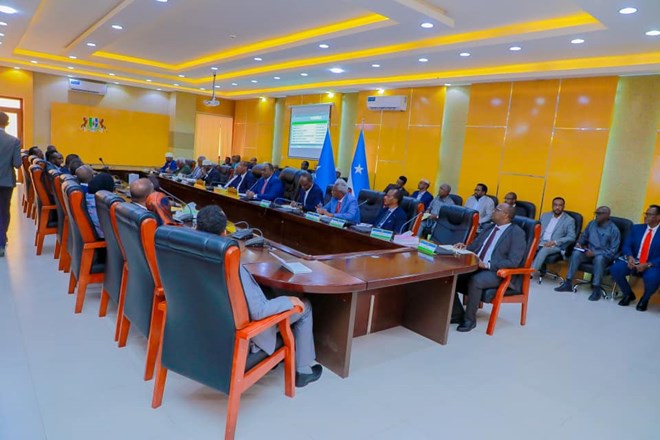
Saturday February 8, 2025

Mogadishu (HOL) – Israel is planning to relocate Palestinians from Gaza to Puntland, an autonomous region in Somalia, and Somaliland, the self-declared independent region, following a proposal by U.S. President Donald Trump to resettle Gazans in what he described as “far safer and more beautiful” areas.
Puntland’s deputy minister of information, Yacob Mohamed Abdalla, told The Telegraph that the state would be happy to receive Gazan refugees if they came voluntarily.
“To start, I can tell you that Puntland is located on the corner of Africa, and Palestine is in the Middle East. There is no reason to deport someone from his country to another country without that person choosing to move.”
But he welcomed free movement. “That is no problem,” he said. “We welcome at that time and it is for the sake of international law.”
Puntland, situated on the northern tip of the Horn of Africa, was once notorious for piracy in the early 2000s but has since transitioned into a relatively stable region with a developing economy. Despite its progress, the region remains economically challenged, with a GDP per capita estimated at $507 in 2022. Security concerns persist, particularly in remote areas where Islamic State affiliates maintain a presence.
On Saturday, U.S. forces launched airstrikes on an Islamic State hideout in Puntland, targeting what the Pentagon described as a “senior ISIS attack planner” and other militants.
Abdullahi Mohamed Jama, a former spokesman for the Puntland state government, supported hosting Gazan refugees, arguing it could bring international support and economic benefits.
Gazans are “Islamic people,” like Puntlanders and would contribute to the “modernizing and development” of the state. The roughly 10,000 refugees who fled the war in Yemen brought “technological expertise” when they arrived, he wrote on Facebook.
If it were to accept Gazans, Puntland’s status in the world would improve and it would receive “security and economic development” in return, Mr Jaha said.
“It’s best to take advantage of the unplanned opportunities that sometimes arise,” he added.
However, Gazans interviewed by The Telegraph rejected the notion of leaving their homes, calling the plan an attempt at ethnic cleansing. “We will not leave Gaza,” several residents stated, highlighting their determination to remain despite the challenges.
The proposal remains controversial, with critics arguing it raises significant humanitarian, legal, and political concerns, particularly given the historical significance of Gaza to Palestinians.
This story is filled with The Telegraph.